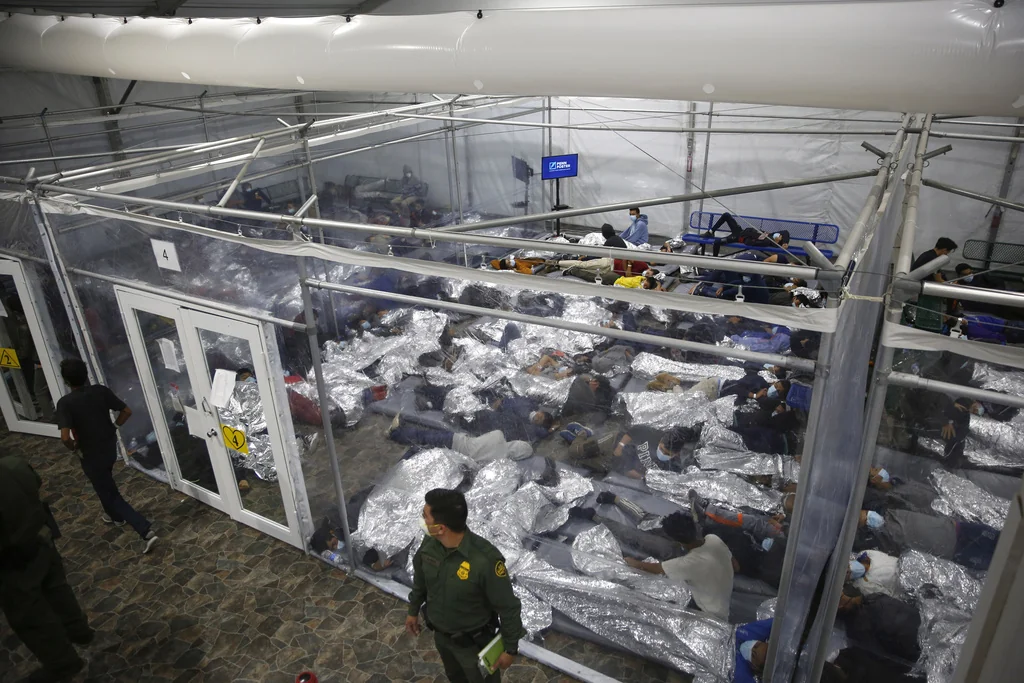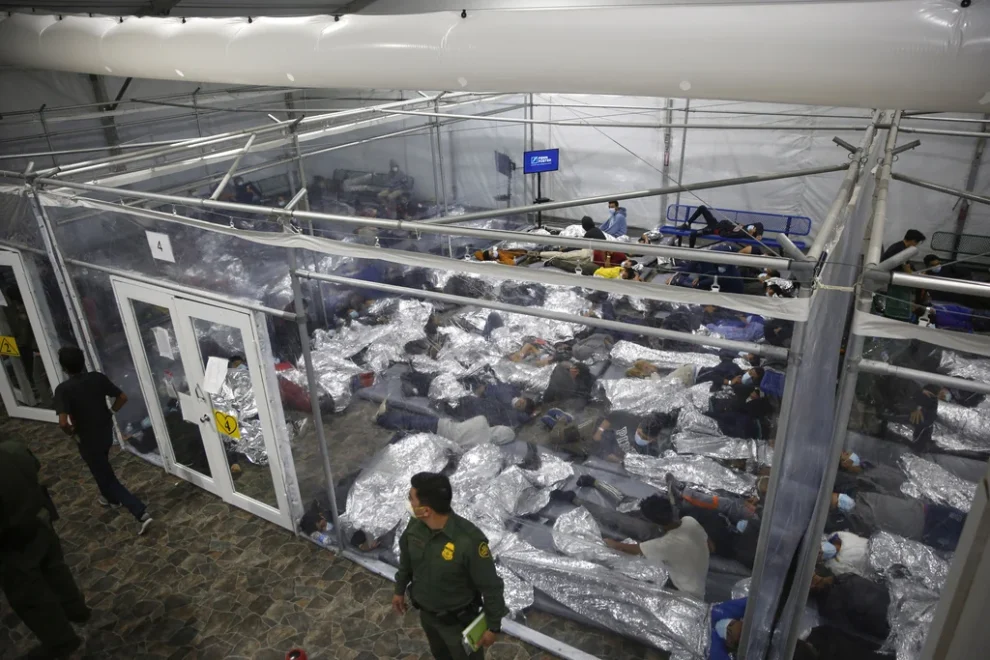The Trump administration is renewing a push to dismantle the decades-old Flores Settlement Agreement, arguing in a court filing Thursday that the policy has become one of the biggest incentives for illegal immigration and a roadblock to effective border enforcement.
The Department of Justice, joined by the Departments of Homeland Security and Health and Human Services, asked a federal court in Los Angeles to terminate the consent decree, which has governed the detention and release of migrant children since 1997. The motion contends the Flores agreement is outdated, unworkable, and has “ossified” U.S. immigration policy by forcing the government to either release families en masse or separate them.

“For years, the Flores consent decree has been a tool of the Left to promote an open borders agenda,” a senior DHS official told the Washington Examiner. “It is long overdue for a single district in California to stop managing the Executive Branch’s immigration functions. The Trump administration is committed to restoring common sense to our immigration system.”
After the filing appeared on the public court docket, major media outlets such as the Associated Press characterized the move as a plan to “end protections for immigrant children in federal custody.” But in reality, the result of ending the Flores agreement could lower the number of alien families separated after entering the custody of Customs and Border Protection.
The motion to dissolve Flores is set to be considered at a July 18 hearing before U.S. District Judge Dolly Gee, who has presided over the case for years and previously blocked the Trump administration’s efforts to detain families longer than 20 days and avoid separating children from their parents in custody.
The effort marks President Donald Trump’s most direct attempt yet to unwind the settlement, which he also tried to terminate during the latter part of his first term, which the courts blocked in 2019. However, with new regulatory standards and a conservative judiciary reshaped during Trump’s first four years, administration officials believe the timing is now right.
The administration’s 67-page filing points to several changes in law and policy since the settlement was enacted, including the Homeland Security Act and the implementation of federal standards of care for migrant children. Officials argue that these developments render the settlement unnecessary and unconstitutional.
The DOJ further claims that the courts have improperly expanded the Flores decree over time, especially by applying it to families with children rather than its original intent to be targeted for Unaccompanied Alien Children, a class of aliens that has been on a steep decline since Trump came back into office.
“This class has included millions of people over the years. The FSA—originally designed to address a very specific set of narrow circumstances—has been interpreted to address the custody of all minors at all stages,” the government wrote in court filings Thursday.
Conservative border hawks have long blamed Flores for the rise in family migration, pointing out that smugglers often exploit the agreement’s 20-day detention limit for children to secure quick release for entire families. Data cited in the administration’s motion show nearly a million family unit encounters at the southern border in each of the past two years.
Liberal immigration attorneys sharply disagree, with one group filing an opposition brief claiming the administration seeks to “strip migrant children of their last remaining legal protections.” But critics say those attorneys, many of whom receive taxpayer-funded fees through court orders, are simply trying to preserve their influence over immigration policy.
DOJ officials say the legal landscape has shifted dramatically in recent years. They argue that the 2022 Supreme Court decision in Garland v. Aleman Gonzalez undercuts the court’s jurisdiction to enforce Flores in its current form — a key pillar of their legal strategy.
“After 40 years of litigation and 28 years of judicial control over a critical element of U.S. immigration policy … it is time for this case to end,” the government wrote.
If the court agrees, the Trump administration could implement long-term family detention while still keeping families connected and potentially avoiding the criticisms of his first term, when Democrats raged about instances where migrant children were separated from their parents, all because of the long-standing settlement that required those separations.

SENATE INVESTIGATION INTO UNACCOMPANIED CHILD SMUGGLING FINDS MAJOR ‘FAILURES’ UNDER BIDEN
Meanwhile, DHS has touted recent figures showing just how much the administration has made inroads toward its goal of stopping the flow of unaccompanied children into the country. A data sheet shared exclusively with the Washington Examiner last month showed that U.S. Border Patrol encountered only 631 UACs in March, compared to 18,716 recorded in March 2021 under former President Joe Biden.
The July hearing could set the stage for one of the most consequential rulings on immigration policy in years. It could also serve as a major test of the Trump administration’s resolve to reshape border enforcement in its second term.
























